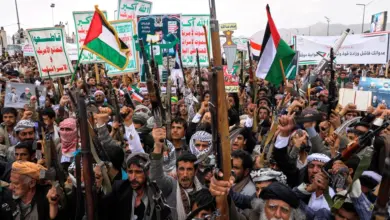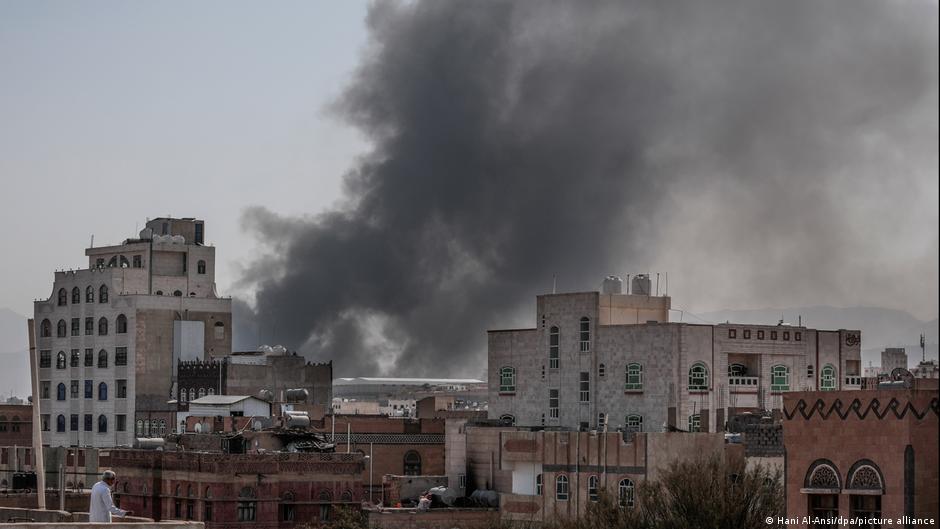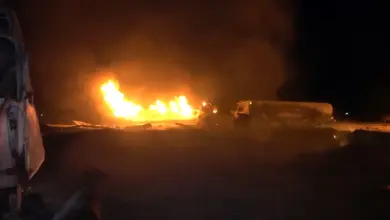Yemeni loyalist forces fought a gunbattle on Monday with opponents of entrenched President Ali Abdullah Saleh one day after he backed out of a Gulf-brokered accord for him to step down.
The clashes in the capital Sanaa cast fresh doubt on prospects for a political solution to a three-month crisis in which youth-led demonstrators, inspired by protests that swept aside the leaders of Egypt and Tunisia, are demanding an end to Saleh's 33-year rule.
"There is heavy gunfire and violent clashing between government forces and Sheikh (Sadiq) al-Ahmar's guards," a witness said, referring to a powerful tribal leader who has sided with protesters. No injuries were reported.
The violence followed the collapse of a transition deal that Saleh was to have signed on Sunday and would have given him immunity from prosecution, ensuring a dignified exit.
Loyalist gunmen trapped Western and Arab diplomats in the United Arab Emirates embassy for hours on Sunday and blocked mediators from heading to the presidential palace to secure Saleh's signature on the deal.
Inside were the head of the Gulf Cooperation Council, Abdullatif al-Zayani, and the U.S. and several European ambassadors, who had to later be flown out by helicopter.
Gulf neighbors who have spearheaded efforts to mediate a transition deal withdrew their initiative, citing a "lack of suitable conditions."
Saleh apologized to the UAE on Monday but foreign governments piled criticism on him over his refusal to sign.
"President Saleh is now the only party that refuses to match actions to words," U.S. Secretary of State Hillary Clinton said late on Sunday.
"We urge him to immediately follow through on his repeated commitments to peacefully and orderly transfer power and ensure the legitimate will of the Yemeni people is addressed. The time for action is now," she said.
France accused Saleh of being irresponsible by refusing to sign, describing the turnaround as "unacceptable."
APOLOGIES TO UAE
The United States and Saudi Arabia, both targets of foiled attacks by al Qaeda's Yemen-based regional wing, are keen to end the Yemeni stalemate and avert a spread of anarchy that could give the global militant network more room to operate.
Saleh, playing on Western fears of chaos, blamed the opposition for the deal's collapse and warned that if Yemen erupted into civil war that "they will be responsible for it and the bloodshed."
Dubai-based security analyst Theodore Karasik said of Sunday's events: "The region as well as the U.S. are going to be still pretty upset with what happened. So I don't think that is going to be forgiven and it makes Saleh look less trustworthy,"
"It is part of the downward spiral that Saleh has created for himself. It appears he has no intention of leaving, and he keeps stalling. This whole episode makes it more clear that he is not serious," he said.
A Yemeni presidential source described Sunday's embassy incident as "irresponsible and unacceptable" but said the UAE ambassador was not a target. It made no mention of the other diplomats involved.
Ahmed Sufan, a former deputy prime minister who has been involved in transition talks, resigned from the ruling party in protest at the incident.




